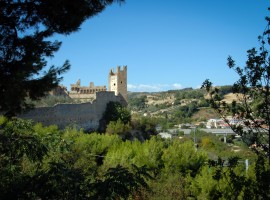
The Roman city of Cupra full of temples, baths, palaces, remains of which can be visited in the various archaeological sites came to light, was destroyed by the Moors in itself. VIII; on its ruins it was built the castle of Marano on which long dominated the curia custody. Francesco Sforza, papal legate in the Marches, at the time of the lordships, lived in Marano, where he lived in the building that…
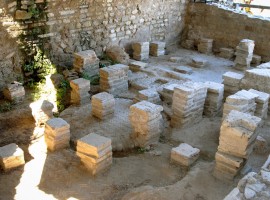
Along the road SS. 16 Adriatica, Km. 3 north of today’s city center is an archaeological site where Roman and Medieval insist the remains of the urban layout of the Roman town of Cupra which is located in a territory already frequented intensively during the Lower Palaeolithic Middle and along the river terraces of Menocchia and Aso and of particular importance in the Piceno period, in relation to the presence of international…
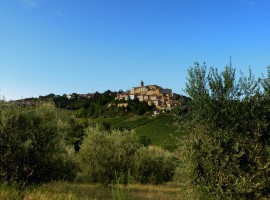
The sanctuary was founded in 1759, on a shrine; there is a fresco of 400, representing the Madonna and Child, St. Francis and St. Anthony, and a wooden sculpture of the fifteenth century depicting St. Rocco.
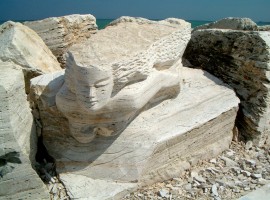
Sculpture Museum where they are kept contemporary sculptures acquired by the holding of an annual National Sculpture Competition with the participation of numerous artists from all over Italy. Currently CLOSED
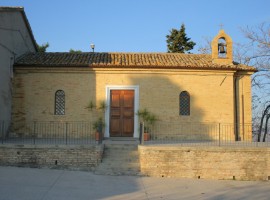
The outer walls of the building are made of brick. The longitudinal side has no openings, while the other side receives a door outlined by a white frame on whose sides there are two single-light, elements which are repeated also in the apse. The gabled roof holding the small bell ever made from bricks and in which there is the original bell which bears the date 1555, the merger and therefore likely…
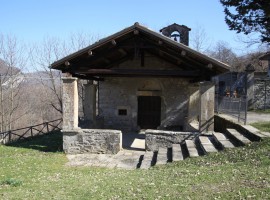
Near the cemetery of Faete fraction of Arquata del Tronto, located in a splendid panoramic position, it stands the Church of Our Lady of the Snows. It shows the visitor suddenly, after a short open path in a dense forest of chestnut trees. Churches or, rather, the chapels dedicated to Our Lady of the Snows were placed near the neviere or places of “collection” of snow for different uses (for example, food…
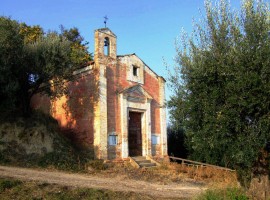
It was built around 1650 by the canon Don Celio Vannarelli Ascoli, who endowed it with liturgical accessories and assets to maintain the chaplain, whose appointment, by the will of the founder, it fell to the family Pagliaroni. The whole complex of goods was the “Chaplaincy”, who had the title of saints Biagio, John, Emidio and Mary, from whence their depiction in the painting of the altar executed in 1655 by the…
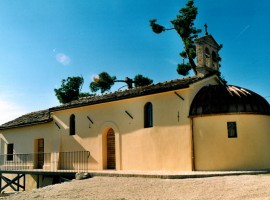
You do not know the date of foundation. The old title, according to sources episcopal starting from the sixteenth century, was “S. Maria to Thurible “derived from a large censer pendant played” under the altar under the image of the Madonna. ” The side frescoes showing various saints including St. Anthony and St. Egidio Abate, protector of the lame, the nurses, the lepers and the fearful, the local farmers began to venerate…
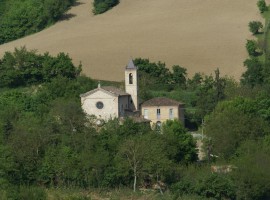
Chiesa di Santa Maria a Corte
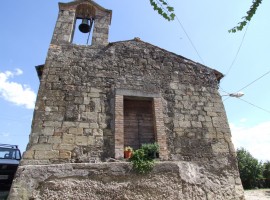
The church dates back to the sixteenth century. Of particular interest are the carvings on the portal of the side. The interior has been heavily altered over the years.